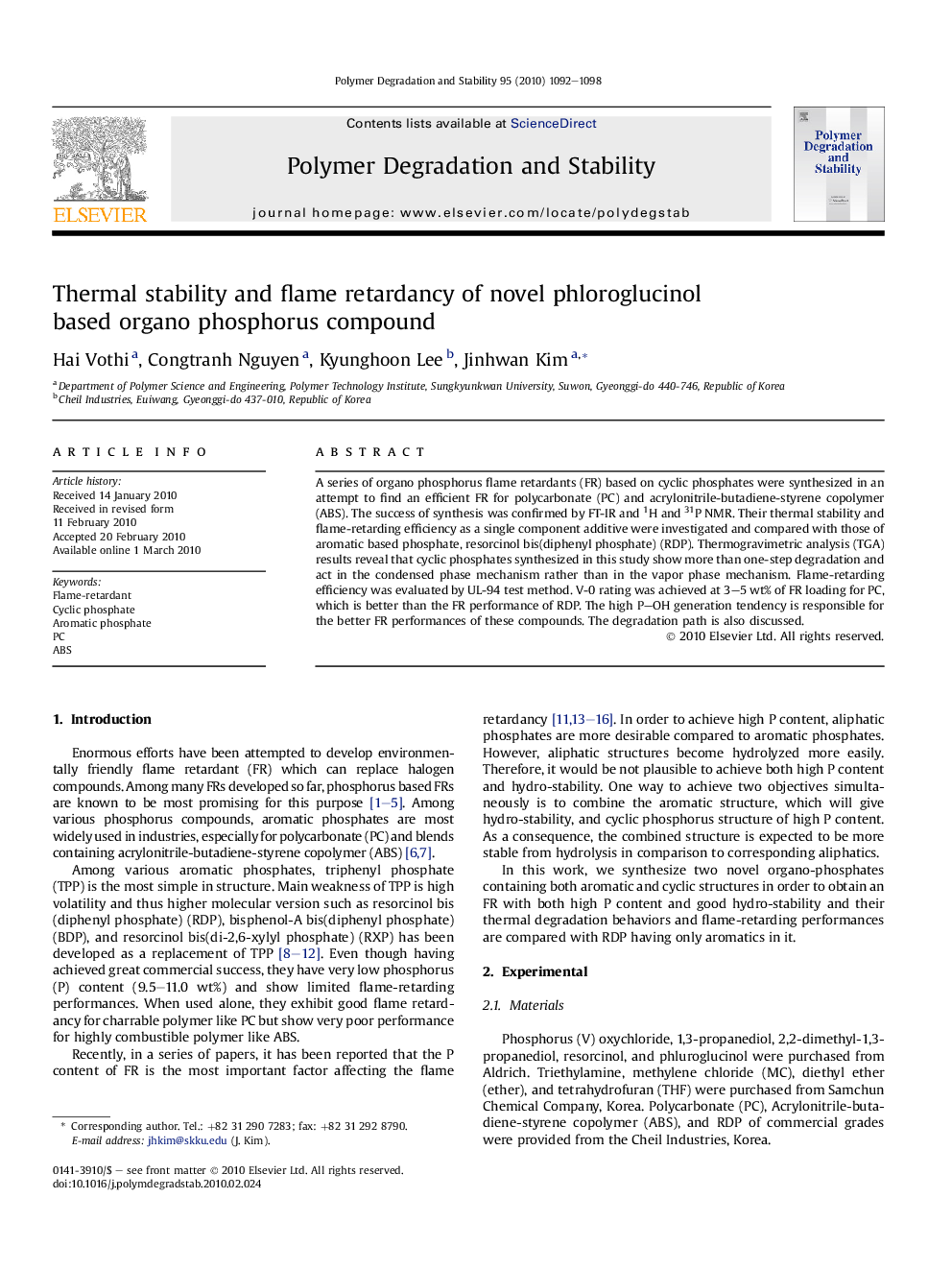| Article ID | Journal | Published Year | Pages | File Type |
|---|---|---|---|---|
| 5203861 | Polymer Degradation and Stability | 2010 | 7 Pages |
Abstract
A series of organo phosphorus flame retardants (FR) based on cyclic phosphates were synthesized in an attempt to find an efficient FR for polycarbonate (PC) and acrylonitrile-butadiene-styrene copolymer (ABS). The success of synthesis was confirmed by FT-IR and 1H and 31P NMR. Their thermal stability and flame-retarding efficiency as a single component additive were investigated and compared with those of aromatic based phosphate, resorcinol bis(diphenyl phosphate) (RDP). Thermogravimetric analysis (TGA) results reveal that cyclic phosphates synthesized in this study show more than one-step degradation and act in the condensed phase mechanism rather than in the vapor phase mechanism. Flame-retarding efficiency was evaluated by UL-94 test method. V-0 rating was achieved at 3-5Â wt% of FR loading for PC, which is better than the FR performance of RDP. The high P-OH generation tendency is responsible for the better FR performances of these compounds. The degradation path is also discussed.
Keywords
Related Topics
Physical Sciences and Engineering
Chemistry
Organic Chemistry
Authors
Hai Vothi, Congtranh Nguyen, Kyunghoon Lee, Jinhwan Kim,
